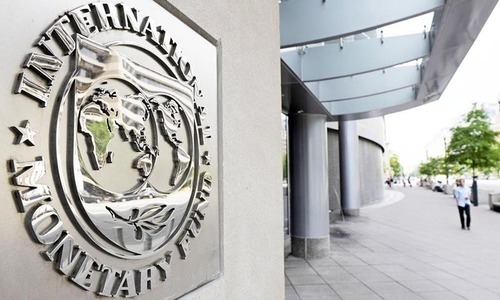ISLAMABAD: The Extended Fund Facility (EFF) of the International Monetary Fund (IMF) may not be back on track in a formal way very soon as the authorities struggle on politically challenging issues — power sector and revenue — amid difficult economic conditions.
While the two sides are currently involved in setting timelines for revised structural benchmarks, the government wants some nascent feel-good factor in some economic indicators to take root before the IMF’s usually contractionary fiscal and monetary stances come into play.
In the same direction, according to informed sources, the government wants to extend the support package for construction to continue until June, instead of its expiry in December, as it is driving the industrial sector activities and growth in related areas while foreign exchange reserves and exchange rate are in comfortable position owing to better remittances.
Special Secretary and spokesperson of Finance Department Kamran Ali Afzal said consultations with the IMF were taking place on a daily basis, sometimes twice a day, on structural benchmarks and their timings.
Authorities grapple with politically challenging issues amid tough economic conditions
He agreed that approval of two key bills relating to the National Electric Power Regulatory Authority (Nepra) and the State Bank of Pakistan (SBP) would become “prior actions” and a way forward on power sector reforms and revenue generation would be necessary for “restoration of the programme in a formal way”.
His understanding was the two laws would become prior actions because these were not related to Covid-19, but power sector reforms and revenue side items could be readjusted as they were affected by the pandemic and remained key challenges.
He said slippage on structural benchmark under the IMF programme had to become prior action in subsequent review “unless waiver is given by the fund”.
Replying to a question, he said the formal review mission of the fund would be arranged once these advisory and consultative discussions took a clear direction.
Mr Afzal said the second wave of coronavirus had put the country in a difficult situation, otherwise things were moving in the right direction. He said the revenue collection had grown by 4.7 per cent in four months and “concrete signs of recovery are emerging” like in the shape of improvement in large scale manufacturing and some crops but it was too early to believe that aggregate growth was also emerging.
He said not only the IMF but also other lender like the World Bank and Asian Development Bank were supportive of the government in passing through difficult times and their engagements in advisory role were positive.
He said the IMF had extended $1.4bn rapid financing instrument soon after Covid-19 broke out early this year, the World Bank advanced its loan programmes and so did the ADB and Asian Infrastructure Development Bank. The ADB would be approving $300 million programme on trade competiveness by end this month.
He declined to commit any deadlines but agreed that revival of the IMF programme, which he insisted had never been stalled, was not in sight by end-December, saying “this is clear to all”.
He parried suggestions towards continuing with the status quo until March or June to synchronise with next year’s budget. “We are under the fund programme but in a different way. We are sharing with them all the data and taking their advice as well” which should not have been the case had the programme not been intact, although second quarterly review was not completed, he said.
Mr Afzal said it had been decided in principle that the international commercial loans would be maintained at the current level.
Responding to a question, he said the IMF and other lending institutions were not against the subsidies but they wanted them to be targeted to support only the needy or to stimulate economic growth.
The $6bn IMF programme has been in limbo since January this year and second quarterly review of the 39-month facility signed in July 2019 could not be completed.
Published in Dawn, November 13th, 2020














































